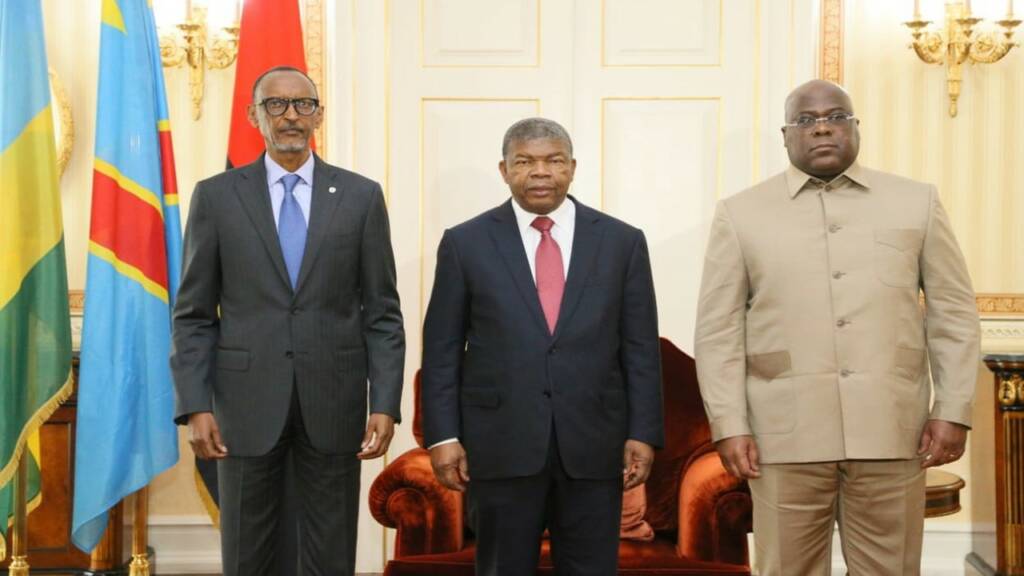The conflicts in Africa are unending. Two nations that have engaged in hostilities with each other are the Democratic Republic of Congo and Rwanda. Many would attribute the reason for tensions to the past. The continuous hostilities have put a break on the development of the two countries. As Russian author, Anton Chekhov said, “The world perishes not from bandits and fires, but from hatred, hostility, and all these petty squabbles.” And for peace to prevail, Rwanda needs to accept its realities regarding M23.
The Democratic Republic of Congo and Rwanda, the two central African countries have had swords drawn against each other for the last three decades. The relations have improved between the countries for brief periods but they are at square one after the resurgence of the M23 rebels.
According to a 2021 report by the Kivu Security Tracker, which records violence and abuse in eastern Congo, the M23 rebels are one among the 120-armed militias that are currently active across the provinces of North Kivu, South Kivu, and Ituri. This group is popularly known as M23, or the March 23 Movement, primarily made up of the Tutsis, the same ethnic group that President Paul Kagame of Rwanda belongs to. Since late 2022, attacks by the organization against the government of the Democratic Republic of the Congo have witnessed an upward trend, mainly after reports claimed that the government was violating a 2009 peace agreement with the group and prejudiced against Kinyarwanda speakers. Congo classifies the M23 as a terrorist organization. With violence continuing and locals being displaced, the efficiency of almost 18,000 soldiers and other U.N. forces deployed in eastern DRC has been frequently questioned.
History of the Conflict
The roots of the conflict go back to 1994, wherein during the genocide in Rwanda, more than a million members of the Hutu ethnic group fled Rwanda and took refuge in Congo, which was then known as Zaire. Numerous genocidaires, especially those in charge of the murder of millions of Tutsis, lived among the Hutus. Invading Congo in 1996, Rwanda supported the uprising that ultimately resulted in the capture of Kinshasa, the capital. Mobutu Sese Seko, the lengthy kleptocratic ruler of the Congo who had received support from the United States and been driven into exile, was overthrown as a result.
Armed groups have subsequently used eastern DRC as a brutal playground, maiming, killing, and making billions of dollars from the smuggling of minerals. To put things in perspective, Congo is a goldmine of minerals and conflict is a good cover for smuggling for Rwanda. Furthermore, the East African community, a seven-nation bloc that has both countries has tried to restore peace but has failed. Experts say that Rwanda’s strategy is to seize Goma and get an upper hand in negotiations. However, one of those demands is for its militants to be absorbed into the Congolese military, something that the President of DRC Felix Tshisekedi reportedly refused to accept but to which former DRC President Joseph Kabila consented.
Reports further indicate that fighting is still taking place in the North Kivu province, which is close to the Goma regional capital. According to UNICEF, more than 1.29 million individuals will have moved due to population displacement in DRC from January to July 2021, which is still on the rise.
Also Read: Rwanda awaits a new wave of probable genocides, if it falls into UK’S trap
Rwanda needs to own up
Rwanda has continuously denied its support to the M23 movement. Towards the end of December, France, Germany and the European Union criticized Rwanda. In addition, a leaked UN report has accused the Rwandan army of supporting M23 and conducting military activities in the region. Sources also indicate that the US in past has actively supported Rwanda because it smuggled from the resource-rich DRC. Considering the resurgence of the M23, Democratic Republic of the Congo President Felix Tshisekedi has called on young people to form “vigilance groups”. The Ethiopia and TPLF’s peace deal has acted as a hope for the Tshisekedi. Furthermore, Tshisekedi also called on DRC’s citizens to mobilize against “Rwandan aggression” in Rutshuru territory. He said on RTNC radio, “We must be aware that no one but ourselves will save our nation and that this requires from each of us a mobilization all around.”
According to recent reports, Uganda, and Kenya, are sending thousands of soldiers to the DRC to assist the government in fighting rebel groups. To this point, to establish peace in the region, Rwanda needs to accept that it supports the M23 movement given that the talks with M23 have always fallen through. Therefore, the world needs a party that M23 can listen to. Without a back channel to communicate with them and make deals, they cannot be out there. And the only way you can become a powerful contact is by speaking on behalf of the insurgent movement or political party.
Rwanda can ensure peace in the region and needs to start by owning its assistance to M23.
https://www.youtube.com/watch?v=7yATRi0DF_0
